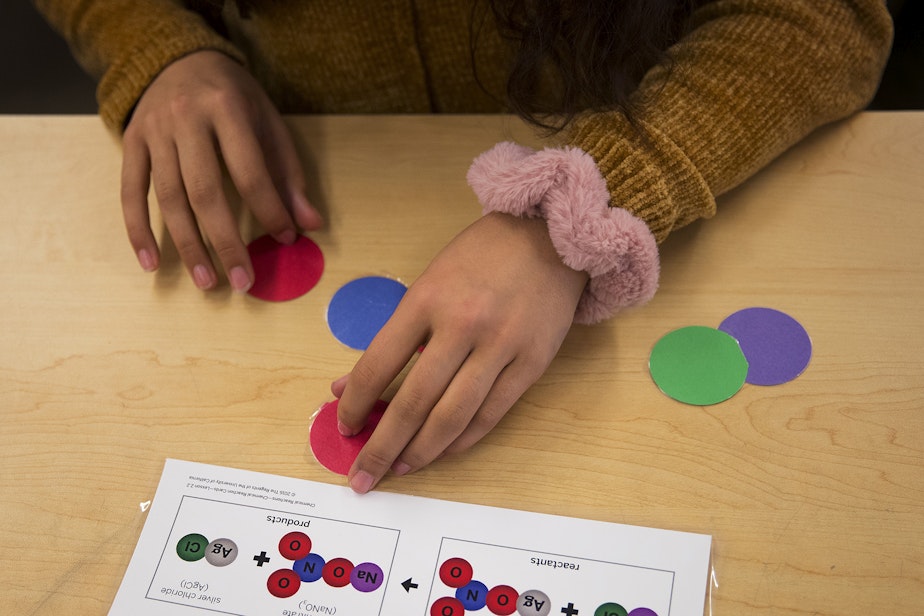Citizens file suit over controversial Seattle Schools science curriculum

A citizens’ group has filed suit to stop the Seattle School District from adopting its new science materials following a year-long curriculum selection process.
The Seattle school board voted in May to buy new science curricula for every grade level. But the process was controversial, both due to criticism that the curricula chosen for elementary and middle schools, Amplify Science, relies too heavily on computers, and because of concerns that the district failed to follow policy and law in selecting the materials.
Emily Cherkin, a parent in the district and a party to the lawsuit, says the district violated state law because the school board never approved the members of a key committee in the curriculum adoption process.
“As taxpayers and parents in the district, we were then not able to understand the potential conflicts of interest with the adoption process."
Potential conflicts of interest, Cherkin says, because critics say several members of the committee worked too closely with the curriculum-makers.
For example, the district’s science program manager, MaryMargaret Welch, was quoted in Amplify Science marketing materials touting the benefits of the curriculum, while also serving on the Instructional Materials Committee that oversees the curriculum adoption process. Those facts were unknown to the school board, appellants charge.
Science Curriculum Court Appeal Filing
Seattle Schools spokesperson Tim Robinson defended the district's process.
“It’s the district’s opinion that the adoption followed state law and school board policy," Robinson said, adding that the science materials were long overdue for replacement.
The appeal, filed June 28 in King County Superior Court, gives the district 20 days to respond.
This is not the first time that a Seattle Schools curriculum has been challenged in court: in 2010, a King County Superior Court judge rejected the district's math materials, saying they disadvantaged students already at risk of falling behind in math. The decision was overturned the following year in the state Court of Appeals.




